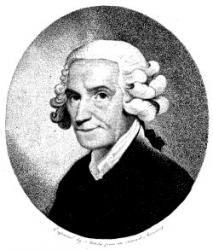Planning worship?
Check out our sister site, ZeteoSearch.org,
for 20+ additional resources related to your search.
- |
User Links
Search Results
O Christ, our ever-blessed Lord
Author: Anon. Appears in 10 hymnals Used With Tune: STEPHENS
O Christ, our ever-blessed Lord
O Christ, our ever blessed Lord
Hymnal: A Selection of Hymns #74 (1861) Topics: Jesus Christ Sufferings and Death Scripture: Isaiah 53 Languages: English
O Christ, our ever blessed Lord
O Christ, our ever blessed Lord
Author: Unknown Hymnal: Worship in the School Room #78 (1865) Tune Title: NEW CASTLE
O Christ, our ever blessed Lord
O Christ, our ever blessed Lord
Hymnal: Worship in the School Room #d119 (1870)
O Christ, our ever blessed Lord
Anonymous
Person Name: Anon. Author of "O Christ, our ever-blessed Lord" in Songs for the Service of Prayer In some hymnals, the editors noted that a hymn's author is unknown to them, and so this artificial "person" entry is used to reflect that fact. Obviously, the hymns attributed to "Author Unknown" "Unknown" or "Anonymous" could have been written by many people over a span of many centuries.
Anonymous
William Jones

1726 - 1800 Person Name: Wm. Jones Composer of "STEPHENS" in Songs for the Service of Prayer Born: July 30, 1726, Lowick, Northamptonshire, England.
Died: January 6, 1800, Hollingbourne, Kent, England.
Pseudonym: Jones of Nayland.
Jones was educated at Charterhouse and University College, Oxford. He became Vicar of Bethersden, Kent (1764); Pluckley, Kent; and Paston, Northamptonshire; perpetual Curate of Nayland, Suffolk (1777); and Rector of Hollingbourne, Kent (1798). He became a Fellow of the Royal Society in 1775. His works include:
The Catholic Doctrine of the Trinity, 1756
Fairchild Discourses, 1775
Physiological Disquisitions, 1781
A Treatise on the Art of Music, 1784
Church Pieces for the Organ with Four Anthems in Score, 1789
Jones was a descendant of the Col. J. Jones, who was one of the signatories to the death warrant of King Charles I of England. He used to regularly observe January 30 as a day of fasting and humiliation for his ancestor’s sin.
Music:
ST. STEPHEN
--www.hymntime.com/tch/
William Jones
James Nares

1715 - 1783 Person Name: J. Nares Composer of "AYNHOE" in Songs for the Lord's House Born: April 19, 1715, Stanwell, Middlesex, England.
Died: February 10, 1783.
Buried: St. Margaret’s, Westminster, England.
After his family moved to Oxford, Nares became a chorister in the Chapel Royal. He later became deputy organist at St. George’s Chapel, Windsor; organist in York Cathedral (1734); and organist in the Royal Chapel and composer to the king (1756). He received a doctorate of music degree from Cambridge University in 1756. In 1770, the Catch Club awarded him a prize for his glee To All Lovers of Harmony.
Sources:
Frost, p. 683
Nutter, p. 462
http://www.hymntime.com/tch/bio/n/a/r/nares_j.htm
====================
http://en.wikipedia.org/wiki/James_Nares
James Nares


 My Starred Hymns
My Starred Hymns


